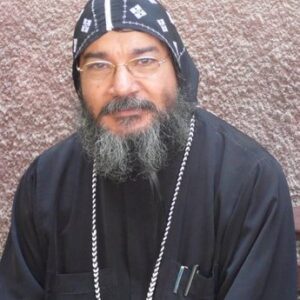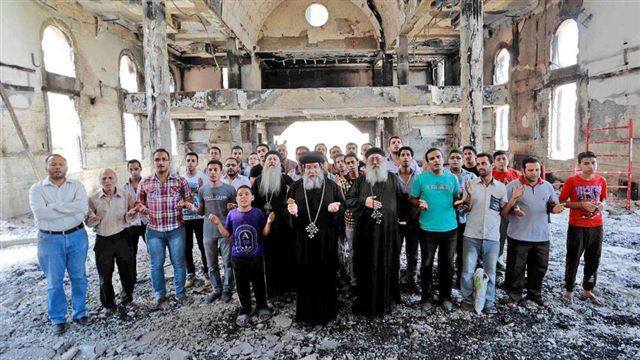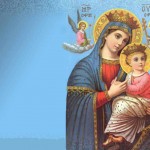Who shall separate us from the love of Christ Shall tribulation, or distress, or persecution, or famine, or nakedness, or peril, or sword Yet in all these things we are more than conquerors through Him who loved us. (Rom 8:35,37) The last few weeks Egypt witnessed a systematic attaches on Churches and Christians businesses and …
Who shall separate us from the love of Christ Shall tribulation, or distress, or persecution, or famine, or nakedness, or peril, or sword Yet in all these things we are more than conquerors through Him who loved us. (Rom 8:35,37)
The last few weeks Egypt witnessed a systematic attaches on Churches and Christians businesses and properties all over Egypt by the Muslim Brotherhood in a so called?peaceful protest to bring back their ousted leader Mohamed Morsi to power. These attacks resulted in burning over 50 churches and hundreds of homes and businesses that belonged to Christians all over the country. El-Menia in Upper Egypt was one of the worst cities to be attached. Bishop Macarius assistant bishop of the city of El-Menia recounts his experience during a liturgy he prayed with his congregation in midst the rubble and the smell of smoke.
The People of EL-Menia have experienced a very unique experience. They have gathered to pray the Holy Liturgy in two of the churches that have been recently been burned and vandalised. It was a similar experience as those who used to pray in catacombs in the first three centuries of Christianity when Christians used to pray in the ancient tombs and the smell of death is surrounding them. This smell did not repel them but more so attracted them to eternal life. We were praying surrounded by the remains of the old church and the stench of burned furniture and structure was still lingering as some areas were still smoking which impaired our vision at times. It was truly like these old catacombs.
We agreed with some of the fathers the night before the liturgy that the number will be limited so as not to bring any attention or stir up those criminals who would see that as a sort of challenge, especially that acts of thievery were taking place everywhere in the town. To our surprise we found a great number of people coming to attend the liturgy from all ages despite the fact that danger still lingered around the church area. The number of people who had communion was larger than usual on that day. It was a great scene to have the Bishop, Priests and People together consoling each other.
After the liturgy the young people quickly started closing off the openings which the criminals have used to take out all the tiles, the marble and the electric wires and sold it with very cheap prices in front of everyone. Yet the people have overcome the pain and agony of these scene and decided to get back to their normal life. But they all learned a valuable lesson, that the church is not only a building, but it is the communion of the people with their shepherd around the Eucharist.
The scene of the burned Altar reminded of a scene from the bible when the Israelites came back from captivity at the time of Ezra (Ezra 3: 12). Most probably the clergy of the church were the most affected since it was them who built the church in much toil for many years.
I have previously prayed in the streets and in homes and on top of houses and under trees yet none of them had the same beauty and reverence. There was nothing to distract us from God with respect to the beauty of the place and its icons, the true beauty was God who was presented in the Eucharist. After the liturgy everyone attending felt renewed with energy and hope and they went around kissing (taking the blessings of) the burnt walls and broken remains that represented to them a great witness to Christ and a sign of strength and blessings to come.
His Grace Macarius, Auxiliary Bishop for the Holy Metropolis of Al Minya, (Theodosiopolis) and Abou Qurqas, Assistant to His Eminence Arsenius
Join Us: Sign Up Today!
Tags:










